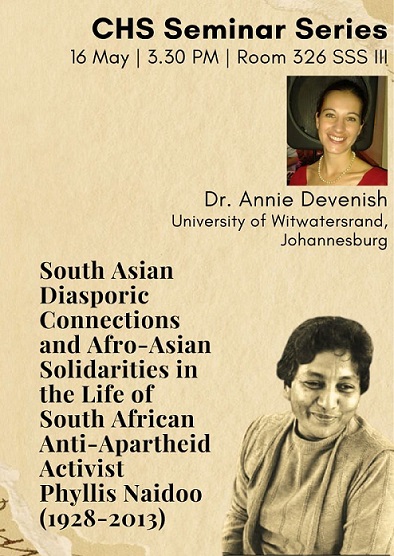
Abstract: This talk will discuss how the life of an anti-apartheid activist, Phyllis Naidoo (1928-2013), provides an entry point to understanding the nature of Indian diasporic identity and the meaning of being an African. As a third-generation South African of Indian origins with her grandparents being indentured workers, Naidoo’s life story is one of entanglement with South Africa, a rooted commitment to its people, and the forging of Afro-Asian solidarities against the backdrop of the liberation struggle. Naidoo’s life also reflects the story of migration and networks and the multi-layered identities of migrant Indians.
Dr. Annie Devenish is based in the History Department at the University of Witwatersrand in Johannesburg, South Africa. Her research interests include gender, activism, and identity in the global South. Dr. Devenish’s publications include a book titled, Debating Women’s Citizenship in India 1930-1960 (Bloomsbury, 2019) and several research articles on feminism within anti-colonial politics, women’s life writings in India and South Africa, the informal economy, and traditional health practitioners of South Africa. She is currently working on Indian women at the United Nations, and on a project on the life of Dakshayani Velayudhan, the first and only Scheduled Caste woman to be elected to the Indian Constituent Assembly.